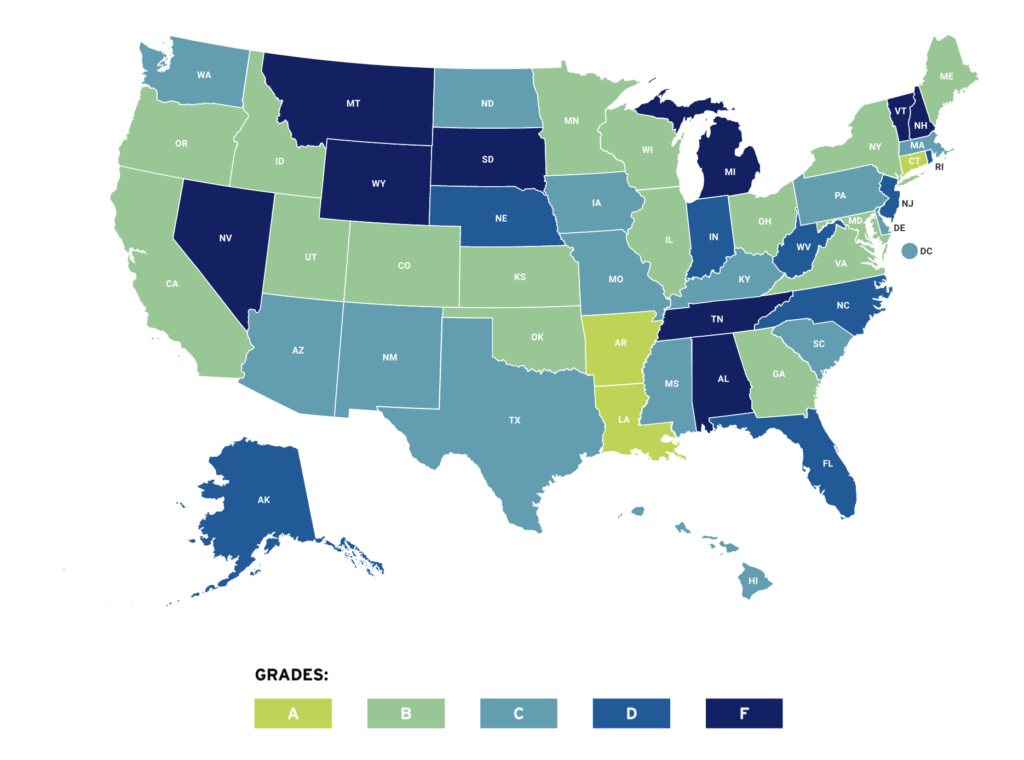Legal Protections for Living Organ Donors Are Increasing. But More Needs to Be Done.
August 8, 2022
There is newfound momentum for laws that protect living organ donors, with eight states enacting new legislation in the past several months. Delaware, Florida, Georgia, Louisiana, Minnesota, Nebraska, Ohio and Virginia are making strides in increasing living donor protections.
The American Kidney Fund (AKF) has been leading efforts at the state and federal levels to secure these protections, and with the passage of these bills, the overall national average grade on AKF’s State of the States Living Donor Protection Report Card has recently moved from a D to a C. The Report Card evaluates each state and the District of Columbia on how well their existing laws encourage living organ donation and reduce barriers for living donors, such as anti-insurance discrimination laws, tax credits for donor expenses, and job-protected leave.
This is promising news for patients on the transplant waitlist, and the people in their lives who want to donate a lifesaving organ. Donating a kidney is one of the most altruistic actions a person can take, and becoming a living donor is much easier when you have guaranteed paid leave from work and protection from insurance discrimination. Yet with nearly 106,000 people waiting for an organ transplant—including the nearly 90,000 who are waiting for a kidney—much more needs to be done to ensure that where Americans live does not impact their ability to give the gift of life.

For example, Virginia resident Kat Velkoff decided during the pandemic that she wanted to donate her kidney to a stranger in need. However, Kat was warned by her doctor that she may have trouble getting life insurance, since having one kidney is considered a pre-existing condition. Kat decided to move forward with the donation anyway, and vowed to fight to change this discriminatory law. Research has demonstrated that living kidney donation does not change life expectancy.
“I think if we could take away the stigma and the scariness and the financial constraints from people who are willing to donate a kidney, we could reduce the number of people who die every day waiting for kidneys,” Kat said.
Thankfully, with the passing of HB 421 in Virginia, the state improved its grade to a “B” after enacting an anti-insurance discrimination law that prevents life, disability and long-term care insurers from discriminating against living donors.
Through the AKF Living Donor Protection Report Card, AKF hopes to continuously shine a bright light on the states that are making progress to encourage living donation. AKF is proud of the national average increase and hope that this encourages other states to enact legislation to protect living organ donors.
Although this progress is promising, there is still much more we can do as a nation to protect living donors and encourage more people to become living organ donors. AKF encourages the U.S. Congress to pass legislation, such as the Living Donor Protection Act, that remove barriers to living donations for all Americans.
LaVarne A. Burton is the President and CEO of the American Kidney Fund.
For more information on the American Kidney Fund’s Report Card, visit livingdonor.kidneyfund.org.
